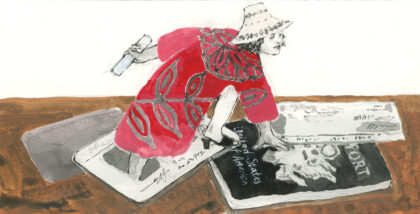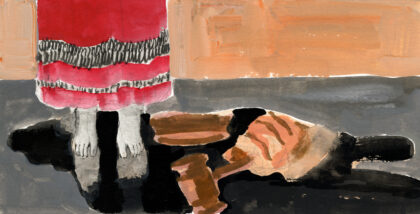Welcome to the inaugural issue of Adi magazine: Domestic Dissonance. The title we’ve chosen speaks to two key threads that run through this issue, which features topics ranging from proxy warfare to manipulations of motherhood. One: how does the persistent myth of American exceptionalism shape the lives of the most vulnerable among us, within and beyond our borders? Two: what does home mean in a nation where for so many, exclusion is the norm?
Michelle García examines the stark resonances between Gitmo terror tactics and today’s detention of migrants. Rafia Zakaria investigates how border and state policies co-opt the fight against Female Genital Mutilation to further marginalize Muslims and render whole communities suspect. And Terese Mailhot chronicles the bureaucratic negotiations of indigenous people whose lives are restricted by US-Canada treaties.
Nimmi Gowrinathan traces the experiences of women in Sri Lanka and on the Mexican border, considering motherhood as a cultural commodity wielded in times of political crisis. And Melissa Chadburn confronts how deep-seated notions of personal responsibility affect childcare provision in America, revealing a patchy social safety net that places compliance over human potential.
International security analyst Candace Rondeaux argues that firsthand experience with injustice is crucial, but sorely lacking, in the realm of foreign policymaking. Mariame Kaba contests individualistic thinking in politics and activism, articulating the necessity of collective resistance. We’re also thrilled to publish a searing new poem, “The Woman State,” by former US Poet Laureate Tracy K. Smith.
Throughout the issue, you’ll find original artwork by Jia Sung. And as you explore, tune into our playlist for Domestic Dissonance, which features songs selected by each of the contributors.
Adi, meaning “to strike” in Tamil, has multiple connotations (a military intervention or attack; a form of protest; a euphemism used by women to describe rape). As you read, you will notice that we’ve utilized this multiplicity of meanings—protest, intervention, and violence—as a system of categorization.
This magazine emerged from a frustration with the disconnect between the way policies are enacted, and the populations who feel their impact most acutely. All of the voices in this issue probe this disconnect, awakening us to the lived realities often masked by political rhetoric, and urging us to do the work of envisioning another way.
It is my hope that this project is rooted in that sense of critical imagination. As Mariame Kaba says in her interview with Eve L. Ewing, “I always stick to the possibilities that exist, still, for us to have more freedom, to get toward that thing, the horizon that we’re all trying to work for.”
—Meara Sharma, editor-in-chief
In this Issue
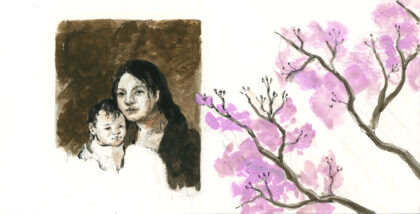
The Cold Violence of Compliance
Fighting for accessible childcare in the nation of personal responsibility.

Candace Rondeaux: How Injustice Should Inform Policy
The international security analyst on coming of age politically and the changing face of proxy warfare.
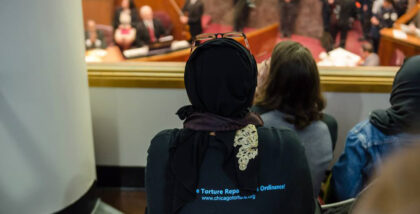
Mariame Kaba: Everything Worthwhile Is Done With Other People
The organizer and prison abolitionist on the political power of relationships and why knowledge is built through struggle.
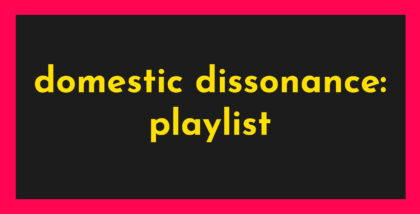
A Soundtrack to Issue 1
We asked each contributor to Adi’s inaugural issue to select a song that resonates with their piece. From Lizzo to Johnny Cash, enjoy these tunes as you make your way through Issue 1: Domestic Dissonance.



